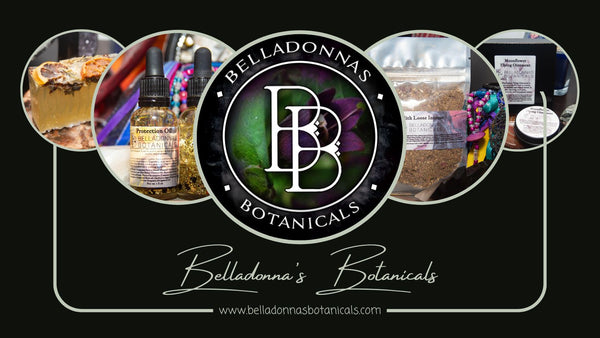The topic of using essential oils to support sobriety came up in the EO group that I am in last night and I gave it some thought as to how using essential oils could potentially help support the various symptoms and issues that arise through the journey of sobriety.
I would preface this by saying that you should consult with a medical doctor first and if detoxing from alcohol or drugs are involved – this needs to be done under medical supervision at a rehab or hospital setting – quite frankly because you can die because detoxing can cause seizures and other life threatening conditions. During the detoxification phase someone in a hospital or rehab setting will not be allowed to have things like essential oils in their possession because they could be used to smuggle in drugs or alcohol.
If the sober person is out of the detoxification phase and out of rehab or a hospital setting, they can use essential oils pretty much like any of us would use them. Some precautions may need to be taken if they have a dual diagnosis meaning that they have underlying mental health conditions, in addition to their addiction or alcoholism and may be treated with other medications. It is very important to note that grapefruit in any form should not be ingested if you are on medications because they can cause you to absorb them rapidly which can lead to some nasty side effects. I’ve had to avoid ingesting grapefruit for many years because of the bipolar/ADD medications that I am on. I can use grapefruit essential oils sparingly topically or in a diffuser without any issues.
Essential oils can help support someone living in sobriety, but cannot replace the crucial components of living sober such as daily AA/NA meetings, having a sponsor and a solid support network, psychotherapy and medication regimens if required. Always consult a medical doctor for any questions or concerns as the Internet, while it is a great source of information, can give you conflicting results.
***Please note that in some cases when dealing with things like cravings and/or severe anxiety and depression: ALWAYS call your sponsor or go to an AA/NA meeting immediately and in some cases, you may need to seek medical attention if you are in danger of using again.***
Some of the areas where essential oils can help support your sobriety will focus on liver support, emotional support, cravings, nausea, and memory issues. This is not a complete list as everyone’s experiences in sober living are different.
Liver support – alcoholism and drug addiction can cause damage to the liver over time. You can use some essential oils to support healthy liver function. These oils will also help support the digestive system as well. It is recommended that you see a medical doctor and have blood work done to evaluate your liver function from time to time.
There are many different oils that can help support the liver such as: Blood Orange, Carrot Seed, Goldenrod, Rosemary, Fennel, Thyme, Lemon, Cypress, German Chamomile, Peppermint and Juniper.
Anxiousness and Stress are common in sobriety and essential oils can help support minimizing their effects. It is recommended to see a mental health care professional if these symptoms persist and are in danger of becoming unmanageable.
Rose, Neroli, Helichrysum Roman Chamomile, Jasmine, Cardamom, Cedarwood, Frankincense, Vetiver, Ylang Ylang, Clary Sage, Lavender, Citrus Oils and many other oils can be diffused or applied topically.
Sadness can be common when dealing with a major life change like sobriety – it can often preclude the ending of some friendships, relationships and general habits. This can cause you to feel sadness and longing since you will not want to hang out at your local bars or attend parties with friends where lots of drinking may occur. As with feelings of anxiety and stress many other oils can be diffused or applied topically. It is recommended to see a mental health care professional if these symptoms persist and are in danger of becoming unmanageable.
Oils that help with sadness include: Cedarwood, Sweet Orange, Petitgrain, Bergamot, Cardamom, Jasmine, Lemon, Mandarin, Rose, Ylang Ylang, Peppermint, Vetiver, Rosewood, Neroli, Lavender, Palo Santo, Scots Pine, Clary Sage, Geranium, and many others.
Cravings - Some people do this via ingestion, but if you are not comfortable with that route of application. I would imagine that an inhaler might help too. . In addition, you may be having other symptoms like anxiety, stress, and sadness that may contribute to the cravings. Consult your support system and/or medical professionals if you are in danger of relapsing.
Cinnamon Bark, Clove, Lemon, Eucalyptus Radiata, and Rosemary can help with cravings.
Nausea can sometimes be an issue in the early stages of sobriety.
Ginger, Peppermint, Spearmint, Lavender, Fennel, and Bergamot.
Sugar and caffeine cravings are common after someone becomes sober. You could minimize caffeine intake (if you are using it for the energy boost) and diffuse citrus blends or use it in a roller with other essential oils and a carrier oil like Jojoba. I personally like diffusing Peppermint and citrus oils on days that I need an extra energy boost.
Some oils can help stave off sugar cravings are: Cinnamon, Grapefruit, Coriander, Fennel, Ginger, Peppermint, Bergamot, Ocotea, and Dill as they support your endocrine system.
Memory issues can result from years of alcoholism and addiction.
Rosemary, Basil, Cypress, Peppermint, Lemon, Ginger, Grapefruit, and Sage can help support any lingering memory issues that you may be experiencing.
***Always be sure to check for any potential drug interactions for anyone who may be on methadone and other types of medications for opioid addiction as there can be serious contraindications***
If you or someone you know is struggling with alcoholism, addiction, or maintaining sobriety, please seek medical attention right away – their life may depend on it.

